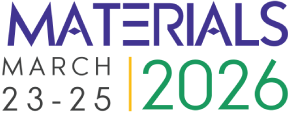Title : Investigating efficiency and environmental impact of type 4 hydrogen tank for heavy mobility
Abstract:
The presentation attempts to establish the state of progress of HYperStock project, as a brick of the huge PEPR decarbonized H2 french program. The project aims at consolidating the French scientific leadership in the field of storage and distribution of hydrogen under high pressure. This is an essential element of the hydrogen value chain on which the research and innovation effort must focus, particularly with a view to decarbonizing heavy mobility.
To reduce the carbon impact of compressed hydrogen transport and storage solutions, the focus shall concentrate on the materials used, by integrating their synthesis, involved processes and recyclability aspects. The material challenge is then considerable and we propose to set a material reference under severe H2 environment, coupled with selection methodologies, allowing to study and identify the potential of new 'material' candidates. Based on the mechano-physical-chemical properties of these candidates, the project will offer a detailed approach to attest the potential of these materials with respect to the severe solicitations to which they are subjected, as well as the expected characteristics.
Our approach in this project is to investigate deeply the potential of two large families of materials for storage and transportation of H2:
- Non-metallic materials, including elastomers, thermosets and thermoplastics as well as composites,
- Metallic materials, in the broadest sense of the term, materials that make up the components of tanks or pipelines.
Concerning the first family of materials, it is necessary to enhance the knowledge of the behaviour under thermo-mechanical (pressure and heating due to cycling or rapid filling) and chemical (H2) stresses, to identify representative tests and to define selection and validation tools (modelling and testing). As for the second family, it is a matter of better understanding and mastering hydrogen embrittlement thanks to advanced studies and characterizations using appropriate equipment, but also to promote the implementation of faster and more accessible ad hoc techniques, and thus to understand more effectively, and on a wider range, the use of these materials.
This work is essential to lay a solid scientific foundation for the development of technological solutions for hydrogen distribution and storage. It will also serve to build new synergies and collaborations within the scientific community involved in the hydrogen domain. The two main indicators of success and follow-up of the project are, on the one hand, the prospect of a 20% decarbonization of type 3 and 4 high-pressure storage solutions and, on the other hand, a significant reduction in safety indexes, through the extension of the lifespan, the reduction of the wall thickness required and the cost reduction of maintenance and periodic inspection.



